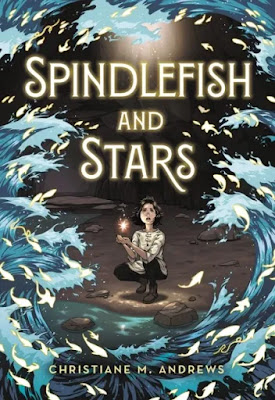Emily Carpenter
 Emily Carpenter is the bestselling author of Until the Day I Die, Every Single Secret, The Weight of Lies, and Burying the Honeysuckle Girls.
A graduate of Auburn University,
Emily Carpenter is the bestselling author of Until the Day I Die, Every Single Secret, The Weight of Lies, and Burying the Honeysuckle Girls.
A graduate of Auburn University,
Carpenter has worked as an actor,
producer, screenwriter, and behind-the-scenes soap opera assistant for
CBS television. Raised in Birmingham, Alabama, she moved to New York
City before returning to the South, where she now lives in Atlanta,
Georgia, with her family.
Carpenter's new novel is Reviving the Hawthorn Sisters,
My Q&A with the author:
How much work does your title do to take readers into the story?Visit Emily Carpenter's website.
I love my title so much! I was on a writing retreat with a couple of writing friends and they actually came up with the title for me. Because this novel is a follow-up, I wanted it to echo the title of the first book Burying the Honeysuckle Girls. And I love the word "reviving" - it conjures up miracles and also death. It's so dramatic.
What's in a name?
Dove, the main character in the 1930s timeline and Eve's grandmother, has many names. Her birth name is Ruth Lurie, a simple name given to a little girl born in a state hospital or asylum for the insane in the 1920s. When she runs away and joins up with a gang of street children, she decides to call herself Annie, after Little Orphan Annie from the radio show because she's plucky and has red hair. Then when she takes a job she calls herself Ruth Davidson, using the last name of her best childhood friend at the asylum. Then, when she runs away with Charles Jarrod to become a tent preacher with him, she gives herself another name Dove!
How surprised would your teenage reader self be by your new novel?
I think teenage Emily would read this book, nod knowingly, and say, "Exactly what I expected." I loved books like this when I was growing up - Southern Gothic mysteries, with lots of spooky elements and some romance thrown in.
Do you find it harder to write beginnings or endings? Which do you change more?
Beginnings are incredibly difficult for me. It's always so hard to know exactly how to get into the story. I don't like to jump in too fast like a thriller - I mean, I'm not writing Jack Reacher, you know?But if I take it too slow or start too early in the story, the pace can lag. That first chapter is a really tricky beast. I usually rewrite that one the most.
Do you see much of yourself in your characters? Do they have any connection to your personality, or are they a world apart?
All of my characters are part of me, even the villains. Because I have to find something I identify with or can empathize with in all of them in order to make them feel human and complex and accurately drawn. On the other hand, none of them are "me." They all come from backgrounds that are wildly different than mine, and have had experiences that I've never had, so in that way, they're nothing like me. I identify with Eve's feeling of protectiveness over her family because of their mental health and the need they have to believe in Dove's legacy. I identify with Dove's determination to take care of herself no matter what, even if she has to fudge a little to keep herself safe.
What non-literary inspirations have influenced your writing?
Movies and TV have had a huge influence on me. I see things visually - cinematically - when I write so every time I see a great movie that's visually so immersive, I'm inspired. Also, there's nothing like movies and TV to teach you how to write great dialogue. Also, music really inspires me. I love it when I stumble on a great, moody, emotional song that really inspires me for a scene or a character. Sometimes, I can get entire ideas for a scene just by listening to a song!
My Book, The Movie: Reviving the Hawthorn Sisters.
The Page 69 Test: Reviving the Hawthorn Sisters.
--Marshal Zeringue

























